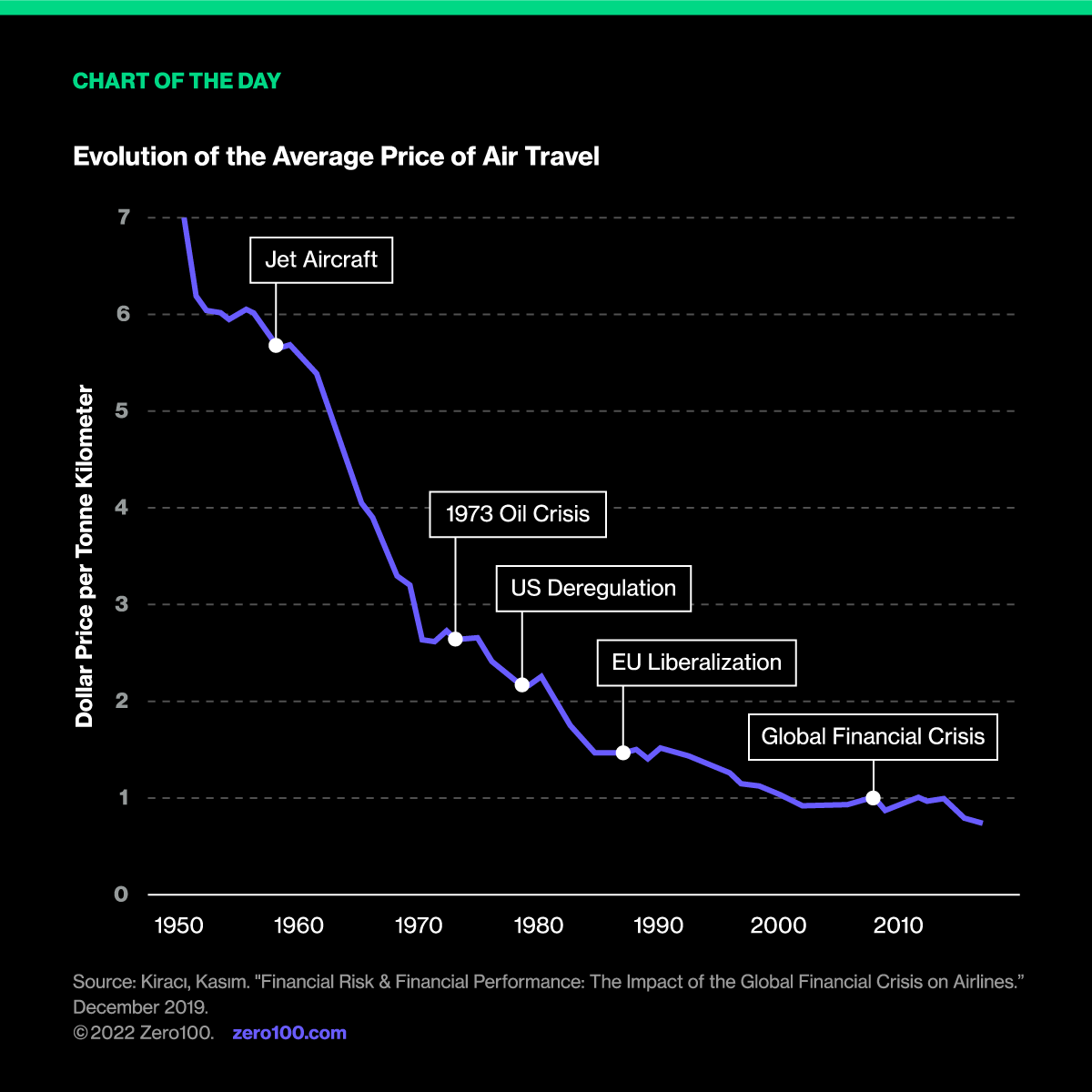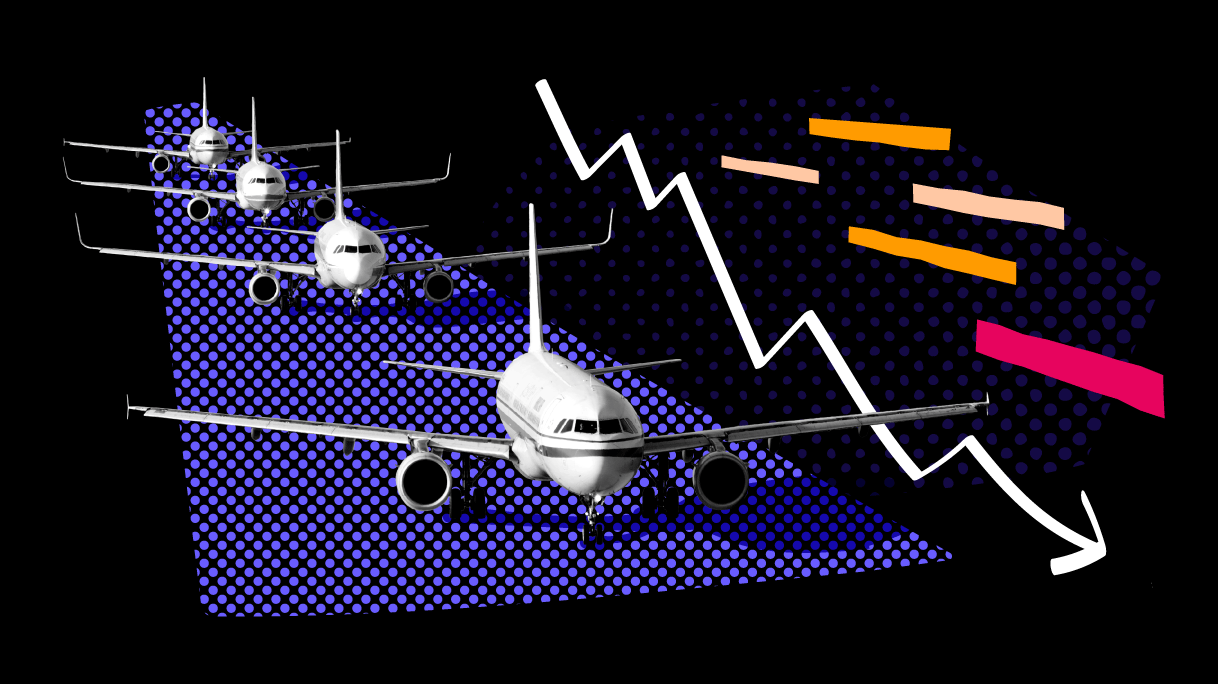Airline misery is due penance for 40 years of streamlining that took a good idea (de-regulation) too far. “Competition” and overpowered digital demand (Travelocity, Hopper, etc.) have created a system with no slack despite being more sensitive to disruption than orchid cultivation. It's time to raise prices, reduce load factors and increase crew salaries. As the old saying goes: you get what you pay for.
Your Time is Their Inventory Buffer
Once you've bought an airline ticket, your time becomes the cheapest operational resource available for airlines to cope with disruptions. Ticket contracts promise to get you from point A to point B. They don't guarantee dates, travel time, or anything else... like peanuts, comfort, or even reliable information. Cancellations, delays, and equipment changes certainly suck, but they don't break the contract terms. And, unlike inventory or expedited shipping used to deal with volatility in other supply chains, passengers' time is free to the airlines. Naturally, they take advantage of that.
This is supposed to be solved by free market forces, where competitors drive each other to offer not just peanuts, but stellar service. This worked as long as business travelers paying huge fares subsidized cheap tourist tickets, but no more. Business travel may never return to pre-COVID levels thanks to Zoom meetings.
Plus, we're seeing a surge in tourists who've been dying to visit Grandma or Disney after two years stuck at home. Add the disillusionment among employees everywhere in the airline industry, coming hot on the heels of a wave of early retirements and furloughs during peak-pandemic, and we have a perfectly horrible travel storm.
Raise Prices to Solve the Problem
Ask yourself this: Does it make sense for a flight from New York to Orlando to cost $124, less than taxis to and from the airports? With all the carbon emissions, safety procedures, and amazing technology... should we really expect flights to be so cheap? The answer is that we shouldn't. Flying a 90-ton metal tube full of people thousands of miles without killing anyone is a big deal.

Airlines have been a bad investment for the last 50 years because consumers are too quick to switch carriers over a $25 fare difference. Selling tickets on schedules that change constantly may be payback for consumers' habit of picking the cheapest flight regardless of brand. Without structural changes in prices and terms, we could end up without reliable air travel in most of the world. While fuel surcharges are already showing up, I wonder if the airlines are warming us up for some even bigger fare hikes later this year.
Lessons for Supply Chain Leaders
The parallels between what airlines and supply chain professionals deal with today are striking. After decades of stripping out inventory, cutting capacity, and grinding suppliers for cost savings... supply chains are lean, mean and anything but resilient.
Three learnings stand out for supply chain leaders reinventing their operations for a sustainable future:
- Invest in ecosystem collaboration: The air travel ecosystem is a complex set of co-dependent operations that require lots of information, but also slack to handle disruptions. Treating it like a simple commodity where price is everything is a huge mistake when things get messy. The same is true of supply chains. Pay your partners better, focus on understanding their operational needs, and invest in shared buffers.
- Build 2030 skills: People like flight attendants, gate agents, ground crew and pilots are the lubricant that keep air travel rolling. Their recent absenteeism explains most of what's failed. Supply chains rely similarly on human problem-solving skills at the junctions between factory, dock, load, and drop. We also need the same kind of operational orchestration that air traffic controllers use to keep things going safely. Don't just hire to fill jobs. Build careers around problem solving.
- Price sustainably: I once had a boss say, “It's easy to sell $10M worth of work. It's hard to deliver it for $10M.” Airlines have been sucked into underpricing to the point where they can't make it work. Supply chain is little different. We must fully cost what we promise and make sure no one sells more than we can deliver.
Let's get ready to pay a bit more and fly a lot less.
Critical Reading
BLOOMBERG
CEO's Start to Turn Supply-Chain Reshoring Talk Into Action
Commentary: Onshoring. Reshoring. Nearshoring. We've become familiar with these buzzwords over the past year. Many companies are turning words into actions—constructing new manufacturing facilities across the US and Mexico.
#reshoring #manufacturing
FORBES
Supreme Court And Carbon Regulation: West Virginia V. EPA Requires Rethinking Climate Activism
Commentary: Dealing a major blow to the Biden administration's ambitious carbon emission cutting goals, the Supreme Court has ruled that the EPA does not have the authority to regulate greenhouse gases or address the climate crisis. The Clean Air Act, which addressed the EPA's influence over power plants, was central to the case.
#epa #carbon #ghg
THE NEW YORK TIMES
County by County, Solar Panels Face Pushback
Commentary: Solar advocates, pushing for cleaner energy, are facing an unlikely adversary: conservationists. Conservationists are horrified to see massive solar projects destroying ecologically sensitive areas – which begs the question, how much are communities willing to sacrifice to decarbonize the economy?
#cleanenergy #solar
